Unit3 How do you get to school?SectionB 2a-2c Reading
文档属性
| 名称 | Unit3 How do you get to school?SectionB 2a-2c Reading | 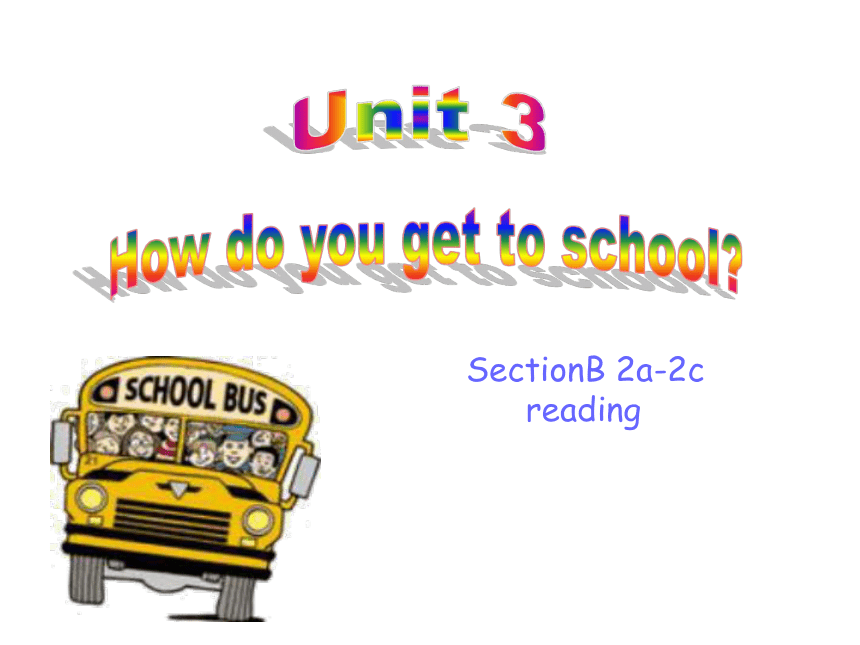 | |
| 格式 | zip | ||
| 文件大小 | 5.0MB | ||
| 资源类型 | 教案 | ||
| 版本资源 | 人教新目标(Go for it)版 | ||
| 科目 | 英语 | ||
| 更新时间 | 2015-03-28 22:21:52 | ||
图片预览

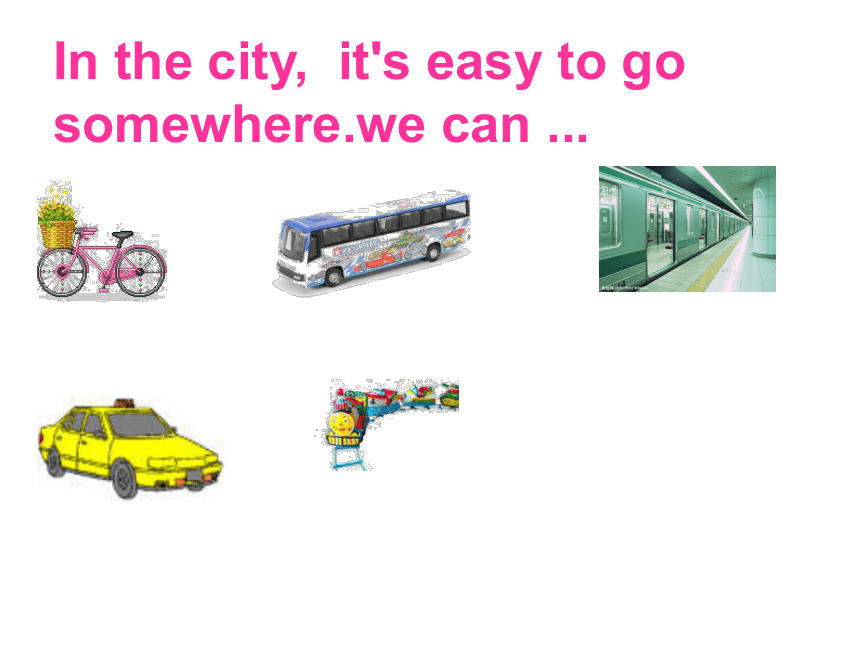
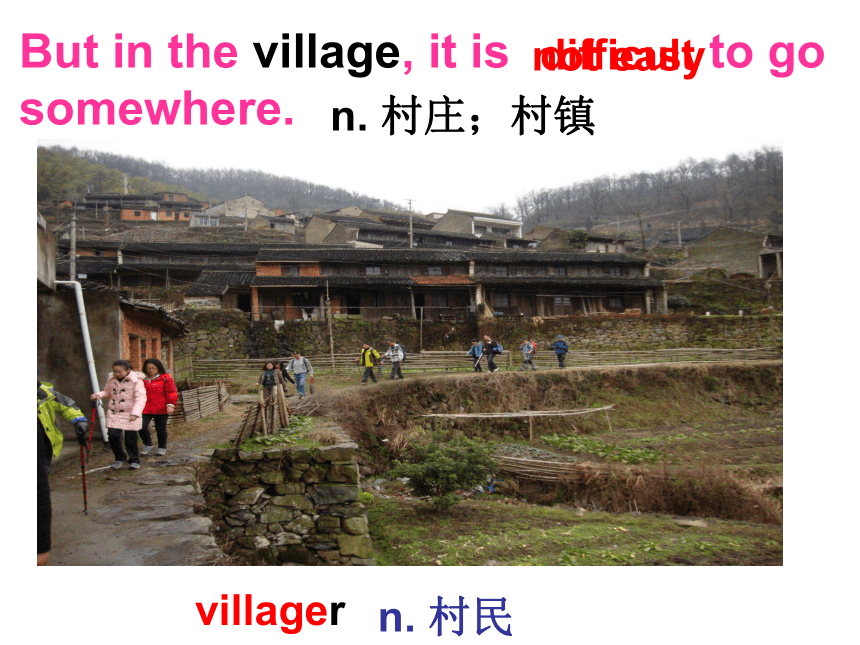
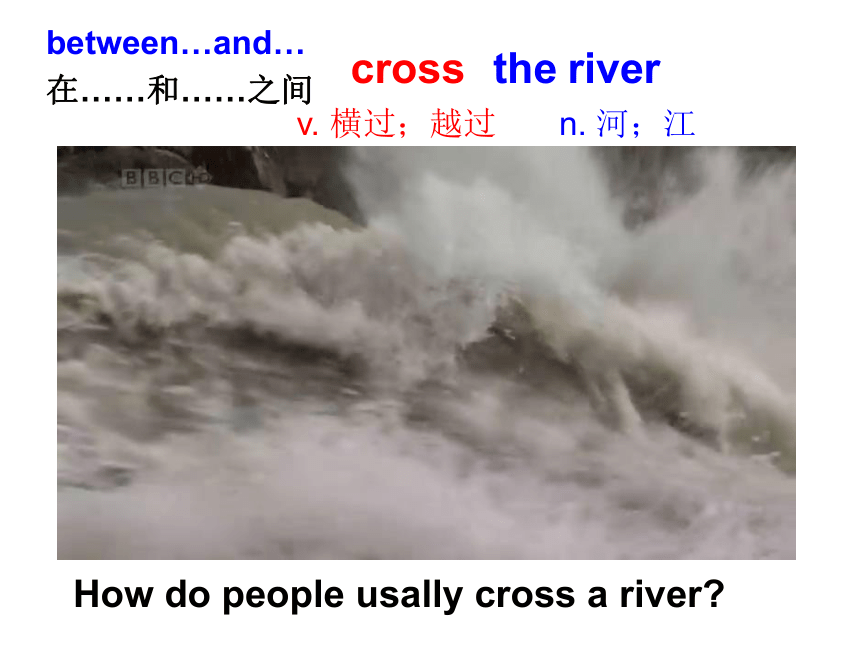
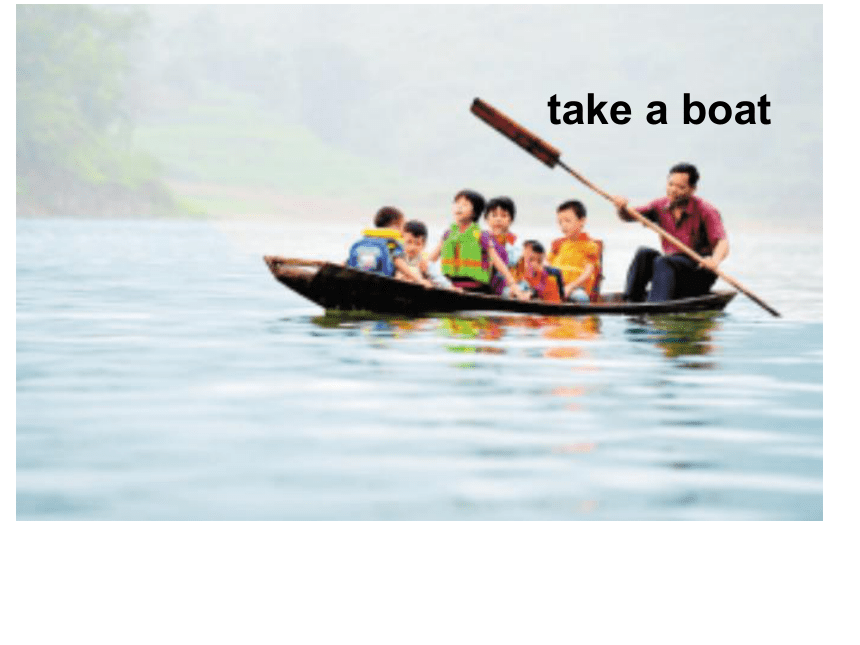

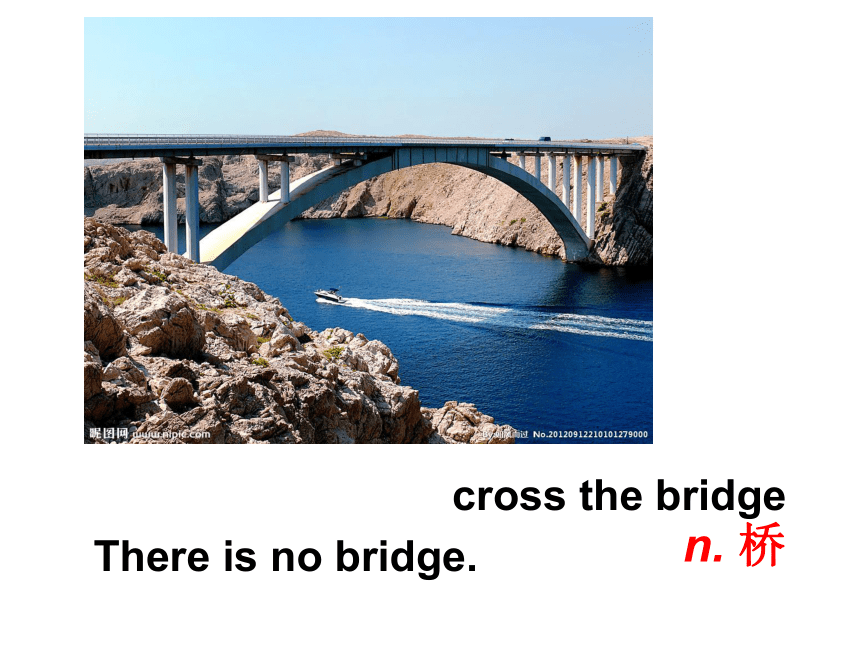
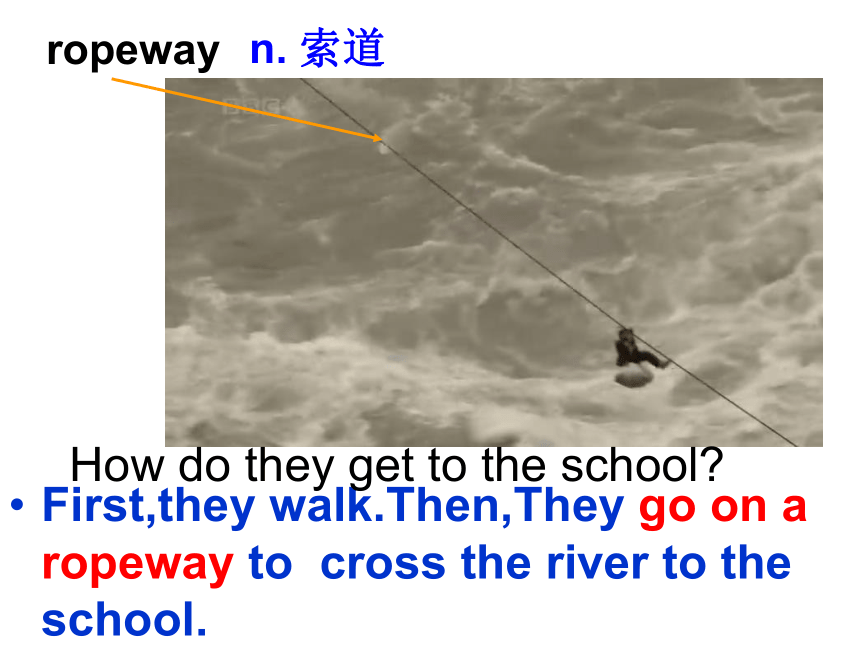
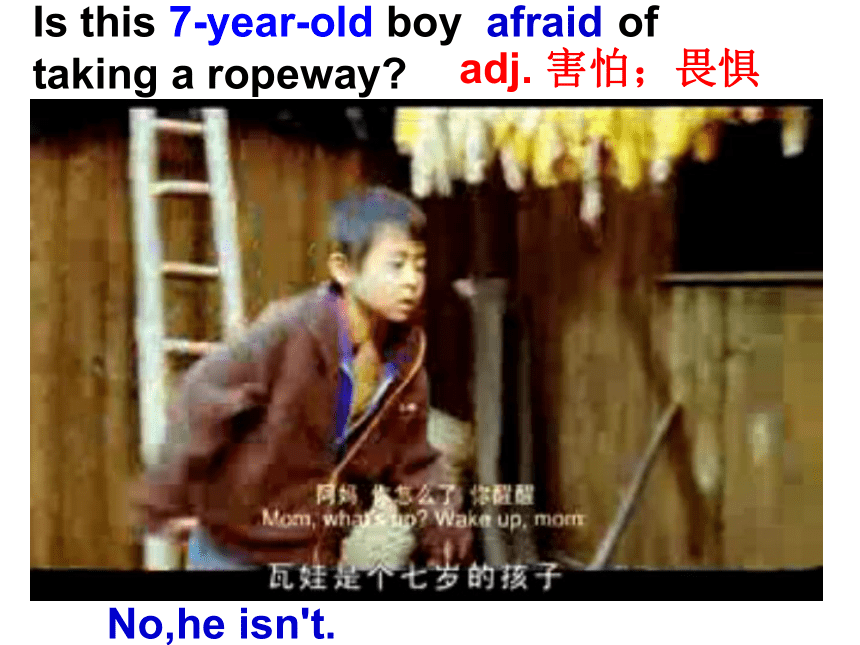
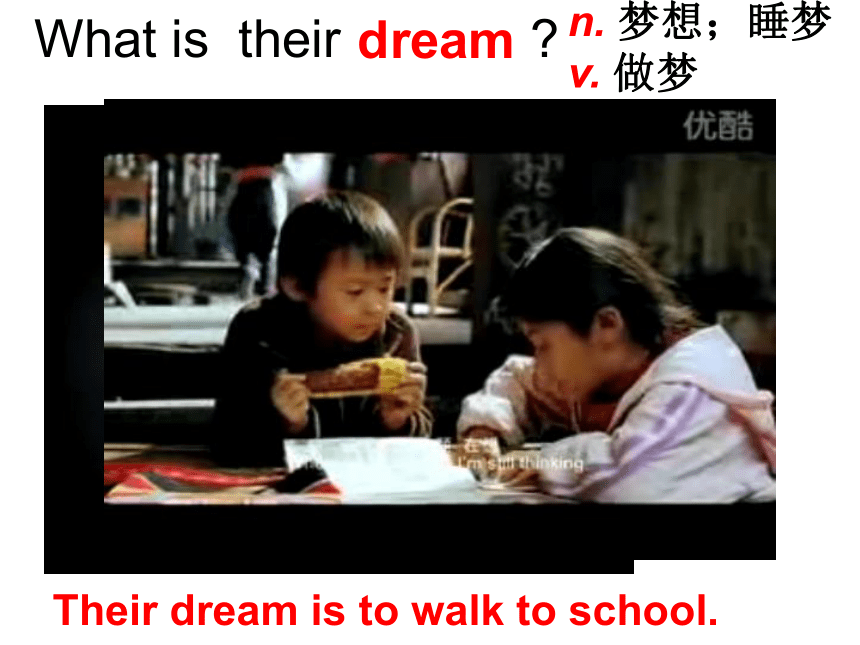
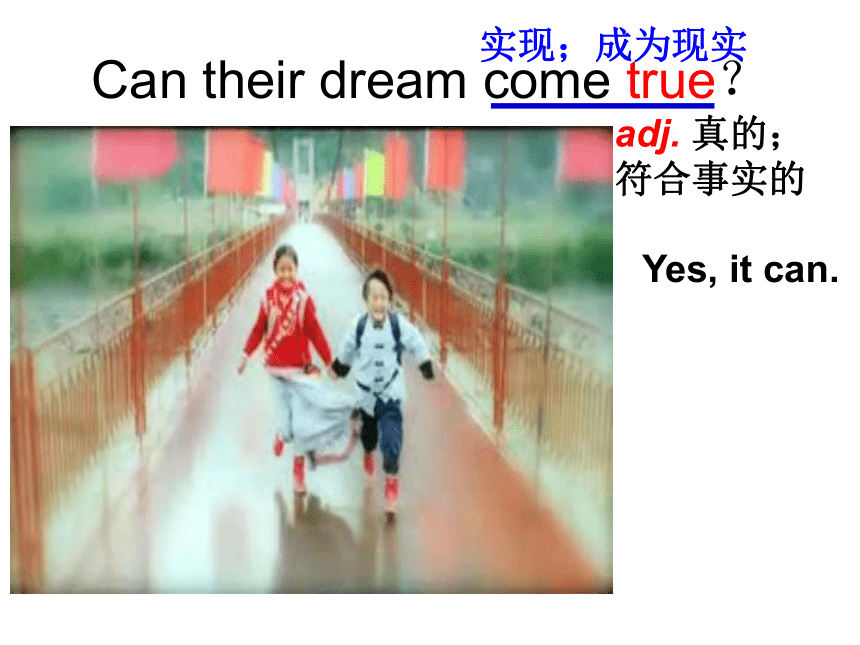
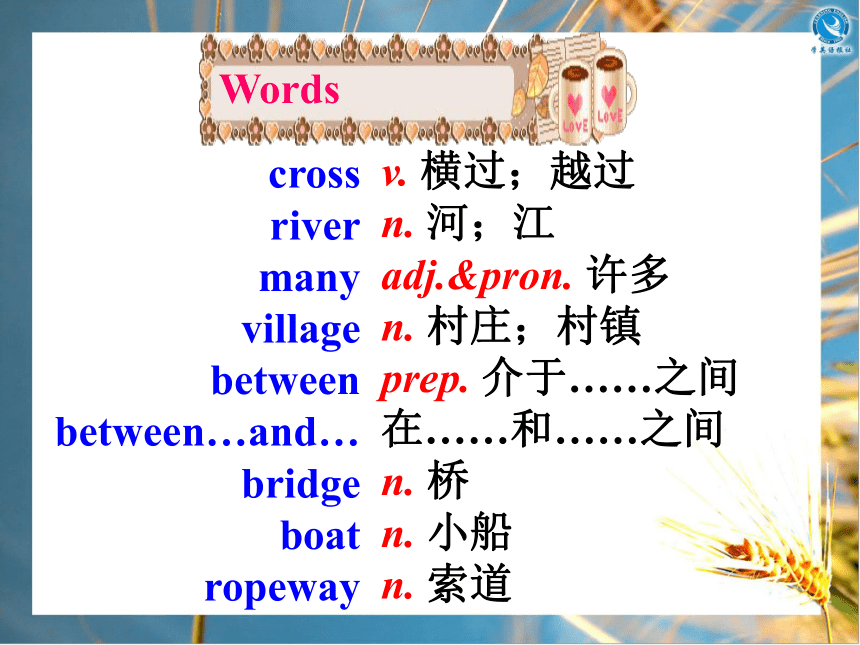
文档简介
课件39张PPT。Unit 3How do you get to school?SectionB 2a-2c
readingIn the city, it's easy to go somewhere.we can ...But in the village, it is to go somewhere.n. 村庄;村镇villagern. 村民difficultnot easycrossriverv. 横过;越过 n. 河;江theHow do people usally cross a river?between…and…在……和……之间take a boatThe river runs too quickly for boats.液体的流动cross the bridgen. 桥There is no bridge.ropewayFirst,they walk.Then,They go on a ropeway to cross the river to the school.How do they get to the school?n. 索道Is this 7-year-old boy of taking a ropeway?adj. 害怕;畏惧No,he isn't.afraid What is their ?n. 梦想;睡梦
v. 做梦dreamTheir dream is to walk to school.Can their dream come true?实现;成为现实adj. 真的;
符合事实的Yes, it can.cross
river
many
village
between
between…and…
bridge
boat
ropeway v. 横过;越过
n. 河;江
adj.&pron. 许多
n. 村庄;村镇
prep. 介于……之间
在……和……之间
n. 桥
n. 小船
n. 索道 year
afraid
like
villager
leave
dream
true
come truen. 年;岁
adj. 害怕;畏惧
prep. 像;怎么样
n. 村民
v.离开
n. 梦想;睡梦
v. 做梦
adj. 真的;符合事实的
实现;成为现实2aLook at the picture and title below. Guess what the passage is about.It’s about how the students cross a river to get to school.Crossing the River to SchoolFast reading.快速阅读1. How do the students in the village go to school?
They go on a ropeway to cross the river to school.读文章,回答问题
Read paragraph 1 to answer the question.
阅读第一段回答问题。
2. Why do they go to school by ropeway?
There is no bridge, and the river runs too quickly for boats.Careful reading仔细阅读读文章,回答问题
Read paragraph 2 to answer the question.
阅读第二段回答问题。
3. Does the boy like his school? Why?Careful reading仔细阅读Yes, he does. He loves to play with his classmates. He loves his teacher.读文章,回答问题Careful reading仔细阅读Their dream is to have a bridge.
Read paragraph 3 to answer the question.
4. What is the villagers’ dream?
5.Do you think their dream can come true?
6.Can we help them?
7.What can we do for them?
Yes, I do.Maybe the government can build a bridge for them.Yes,we can. We can give some money to them.读文章,回答问题2cRead the passage again. Complete the sentences with words from the passage.1. For the students in the village, it is ________ to get to school.
2. They have to cross a very _________ river between their school and the village.difficultbig读文章,回答问题3. They cannot go by boat because the river runs too _________.
4. It is not to cross the river on a ropeway, but the boy is not ________.
5. The students and villagers want to have a bridge. Can their dream come ______?quicklyafraidtrue读文章,回答问题Their dream can come true if people all around the world help them.Lanauage points 1. For many students, it is easy to get to school.
对于许多学生来说,上学很容易。
1) many“许多”,后加可数复数
much 后接不可数名词
lots of=a lot of 后接可数复数和不可数名词
2) It is + adj. +(for sb.) +to do sth.
(对某人来说)做某事怎么样
It is interesting for me to play computer games.
对我来说玩电脑游戏很有趣。 2. There is a very big river between their school and the village.
在他们的学校和乡村之间有一条大河。
between… and… 在……和……之间
My school is between the bus stop and the subway station.
我的学校在汽车站和地铁站之间。3. There is no bridge and the river runs too quickly for boats.
(河上)没有桥梁,而且河水湍急,不宜小船摆渡。
1) no 用于构成否定句,主要用于名词之前,“完全不;根本没有。(no=not a)”
There are no computers in that village.
在那个村庄里根本就没有电脑。 There is no milk in the box.盒子里没有牛奶。
2) run 表示“跑,奔;液体的流动”,在不同语境中分别有不同的用法和含义。
I run to my room and get my bag. 我跑到房间拿自己的包。
The river runs into the sea.这条河流入大海。
4. One 11-year-old boy, Liangliang, crosses the river every school day.
亮亮,一个11岁男孩,每天过河上学。
1)11-year-old“11岁的” 构成一个复合形容词,修饰名词boy。注意year之后没有复数词尾-s。 a four-day trip 一个四天的旅行
a 30-page book 一本30页的书
a three-room house 一个三间屋的房子2)cross 动词,“穿过,越过” 。主要表示在物体表面上横穿。如过马路、过桥、过河等。
Be careful when you cross the bridge.
过桥时要小心。 5. But he is not afraid. 但是他不害怕。
afraid adj. 害怕的;畏惧的
be afraid to do sth. 害怕做某事
be afraid of sth. / sb. 怕某事/某人
Eg. I’m afraid of dogs.我害怕狗
I’m afraid to play with dogs.
6. He’s like a father to me.
对于我来说,他像一个父亲。
1) like prep. 像
be like像; look like看起来像
The baby is like his mother.
= The baby looks like his mother.
这个小婴儿长得像他妈妈。 2) like v. 喜欢
My brother likes strawberries very much.
我的弟弟非常喜欢吃草莓。 7. Many of the students and villagers never leave the village. 许多学生和村民从未离开过村庄。
1)Many of…“….中的许多”
2) leave v. 离开The train will leave . 列车要开了。 “leave for + 地点”表示“动身去某地”
He will leave for Shanghai tomorrow.
明天他将出发去上海。
“leave+ 地点 + for + 地点”表示“离开某地去某地”
I will leave Shanghai for Beijing.
我将要离开上海去北京。课时重点回顾Reviewcross the river to school,
many students, be (not) afraid,
easy/difficult to get to school, between … and …, come true
The river runs too quickly for boats.
go on a ropeway to cross the river to school, love to play with my classmates,
many of the students…, like a father
It is their dream to have a bridge.ways of getting to schoolmany studentsstudents in one small villageone 11-year-old boymany of the students and villagerseasydifficultcross the riverlove schoolnever leave the villagetheir dreama very big riverno bridgeno boatsgo on a ropewayHomework1.Do the other exercises in this part.
2.Summarize the passage .See you.
readingIn the city, it's easy to go somewhere.we can ...But in the village, it is to go somewhere.n. 村庄;村镇villagern. 村民difficultnot easycrossriverv. 横过;越过 n. 河;江theHow do people usally cross a river?between…and…在……和……之间take a boatThe river runs too quickly for boats.液体的流动cross the bridgen. 桥There is no bridge.ropewayFirst,they walk.Then,They go on a ropeway to cross the river to the school.How do they get to the school?n. 索道Is this 7-year-old boy of taking a ropeway?adj. 害怕;畏惧No,he isn't.afraid What is their ?n. 梦想;睡梦
v. 做梦dreamTheir dream is to walk to school.Can their dream come true?实现;成为现实adj. 真的;
符合事实的Yes, it can.cross
river
many
village
between
between…and…
bridge
boat
ropeway v. 横过;越过
n. 河;江
adj.&pron. 许多
n. 村庄;村镇
prep. 介于……之间
在……和……之间
n. 桥
n. 小船
n. 索道 year
afraid
like
villager
leave
dream
true
come truen. 年;岁
adj. 害怕;畏惧
prep. 像;怎么样
n. 村民
v.离开
n. 梦想;睡梦
v. 做梦
adj. 真的;符合事实的
实现;成为现实2aLook at the picture and title below. Guess what the passage is about.It’s about how the students cross a river to get to school.Crossing the River to SchoolFast reading.快速阅读1. How do the students in the village go to school?
They go on a ropeway to cross the river to school.读文章,回答问题
Read paragraph 1 to answer the question.
阅读第一段回答问题。
2. Why do they go to school by ropeway?
There is no bridge, and the river runs too quickly for boats.Careful reading仔细阅读读文章,回答问题
Read paragraph 2 to answer the question.
阅读第二段回答问题。
3. Does the boy like his school? Why?Careful reading仔细阅读Yes, he does. He loves to play with his classmates. He loves his teacher.读文章,回答问题Careful reading仔细阅读Their dream is to have a bridge.
Read paragraph 3 to answer the question.
4. What is the villagers’ dream?
5.Do you think their dream can come true?
6.Can we help them?
7.What can we do for them?
Yes, I do.Maybe the government can build a bridge for them.Yes,we can. We can give some money to them.读文章,回答问题2cRead the passage again. Complete the sentences with words from the passage.1. For the students in the village, it is ________ to get to school.
2. They have to cross a very _________ river between their school and the village.difficultbig读文章,回答问题3. They cannot go by boat because the river runs too _________.
4. It is not to cross the river on a ropeway, but the boy is not ________.
5. The students and villagers want to have a bridge. Can their dream come ______?quicklyafraidtrue读文章,回答问题Their dream can come true if people all around the world help them.Lanauage points 1. For many students, it is easy to get to school.
对于许多学生来说,上学很容易。
1) many“许多”,后加可数复数
much 后接不可数名词
lots of=a lot of 后接可数复数和不可数名词
2) It is + adj. +(for sb.) +to do sth.
(对某人来说)做某事怎么样
It is interesting for me to play computer games.
对我来说玩电脑游戏很有趣。 2. There is a very big river between their school and the village.
在他们的学校和乡村之间有一条大河。
between… and… 在……和……之间
My school is between the bus stop and the subway station.
我的学校在汽车站和地铁站之间。3. There is no bridge and the river runs too quickly for boats.
(河上)没有桥梁,而且河水湍急,不宜小船摆渡。
1) no 用于构成否定句,主要用于名词之前,“完全不;根本没有。(no=not a)”
There are no computers in that village.
在那个村庄里根本就没有电脑。 There is no milk in the box.盒子里没有牛奶。
2) run 表示“跑,奔;液体的流动”,在不同语境中分别有不同的用法和含义。
I run to my room and get my bag. 我跑到房间拿自己的包。
The river runs into the sea.这条河流入大海。
4. One 11-year-old boy, Liangliang, crosses the river every school day.
亮亮,一个11岁男孩,每天过河上学。
1)11-year-old“11岁的” 构成一个复合形容词,修饰名词boy。注意year之后没有复数词尾-s。 a four-day trip 一个四天的旅行
a 30-page book 一本30页的书
a three-room house 一个三间屋的房子2)cross 动词,“穿过,越过” 。主要表示在物体表面上横穿。如过马路、过桥、过河等。
Be careful when you cross the bridge.
过桥时要小心。 5. But he is not afraid. 但是他不害怕。
afraid adj. 害怕的;畏惧的
be afraid to do sth. 害怕做某事
be afraid of sth. / sb. 怕某事/某人
Eg. I’m afraid of dogs.我害怕狗
I’m afraid to play with dogs.
6. He’s like a father to me.
对于我来说,他像一个父亲。
1) like prep. 像
be like像; look like看起来像
The baby is like his mother.
= The baby looks like his mother.
这个小婴儿长得像他妈妈。 2) like v. 喜欢
My brother likes strawberries very much.
我的弟弟非常喜欢吃草莓。 7. Many of the students and villagers never leave the village. 许多学生和村民从未离开过村庄。
1)Many of…“….中的许多”
2) leave v. 离开The train will leave . 列车要开了。 “leave for + 地点”表示“动身去某地”
He will leave for Shanghai tomorrow.
明天他将出发去上海。
“leave+ 地点 + for + 地点”表示“离开某地去某地”
I will leave Shanghai for Beijing.
我将要离开上海去北京。课时重点回顾Reviewcross the river to school,
many students, be (not) afraid,
easy/difficult to get to school, between … and …, come true
The river runs too quickly for boats.
go on a ropeway to cross the river to school, love to play with my classmates,
many of the students…, like a father
It is their dream to have a bridge.ways of getting to schoolmany studentsstudents in one small villageone 11-year-old boymany of the students and villagerseasydifficultcross the riverlove schoolnever leave the villagetheir dreama very big riverno bridgeno boatsgo on a ropewayHomework1.Do the other exercises in this part.
2.Summarize the passage .See you.
同课章节目录
- Unit 1 Can you play the guitar?
- Section A
- Section B
- Unit 2 What time do you go to school?
- Section A
- Section B
- Unit 3 How do you get to school?
- Section A
- Section B
- Unit 4 Don't eat in class.
- Section A
- Section B
- Unit 5 Why do you like pandas?
- Section A
- Section B
- Unit 6 I'm watching TV.
- Section A
- Section B
- Review of Units 1-6
- Unit 7 It's raining!
- Section A
- Section B
- Unit 8 Is there a post office near here?
- Section A
- Section B
- Unit 9 What does he look like?
- Section A
- Section B
- Unit 10 I'd like some noodles.
- Section A
- Section B
- Unit 11 How was your school trip?
- Section A
- Section B
- Unit 12 What did you do last weekend?
- Section A
- Section B
